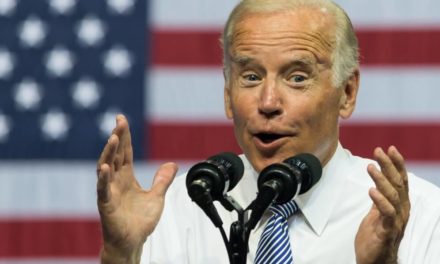The Trump administration said Thursday it will send an additional $16 billion to U.S. farmers to help offset the impact of the ongoing trade war with China.
“The package we’re announcing today will ensure that farmers will not bear the brunt of those trade actions.”
Most of the money will be in the form of direct payments following a breakdown in negotiations earlier this month between Washington and Beijing. The latest bailout comes in addition to the $11 billion the Trump administration paid out to farmers last year.
In order to help slash America’s staggering trade deficit with much of the rest of the world and China in particular, the administration has imposed tariffs on foreign steel, aluminum, solar panels, dishwashers and thousands of individual Chinese products.
U.S. trading partners have slapped retaliatory tariffs on a number of American goods, focusing particularly on agricultural goods to try and squeeze the Trump-supporting heartland of America.
“The package we’re announcing today will ensure that farmers will not bear the brunt of those trade actions,” U.S. Agriculture Secretary Sonny Perdue said.
The first of three payments will likely be made in July or August, and Perdue said negotiators might be weeks away from settling the bitter dispute that has rocked Wall Street with volatility the past couple of weeks.
The Dow Jones was down as much as 400 points through Thursday afternoon trading, with the S&P 500 also down 1.5% and the Nasdaq down 1.8%. U.S. crude oil also plunged 6% on fears the trade war could knock the global economy into a recession, killing demand for energy.
U.S. President Donald Trump will meet his counterpart, Xi Jinping, as the G-20 summit in June in Japan. However, Perdue told reporters he doubts “a trade deal could be consummated before” the first payments go out to farmers.
Meanwhile, China has stepped up propaganda efforts in order to sway opinion at home and abroad.
Speaking to members of the eight-nation Shanghai Cooperation Organization at a meeting in Kyrgyzstan, Chinese Foreign Minister Wang Yi vowed to match “extreme pressure” from the U.S. with its own measures.
The trade frictions have “aroused great concern from the international community,” Wang said. “I stress to everyone that China’s actions are not just about preserving our own legitimate rights and interests but also to maintain the norms of international relations and safeguard the international free trading system.”
Beijing also has hinted it could cut off the supply of rare-earth materials, which are used in everything from smartphones to magnets, batteries and other components essential in manufacturing.
The Associated Press contributed to this report.




